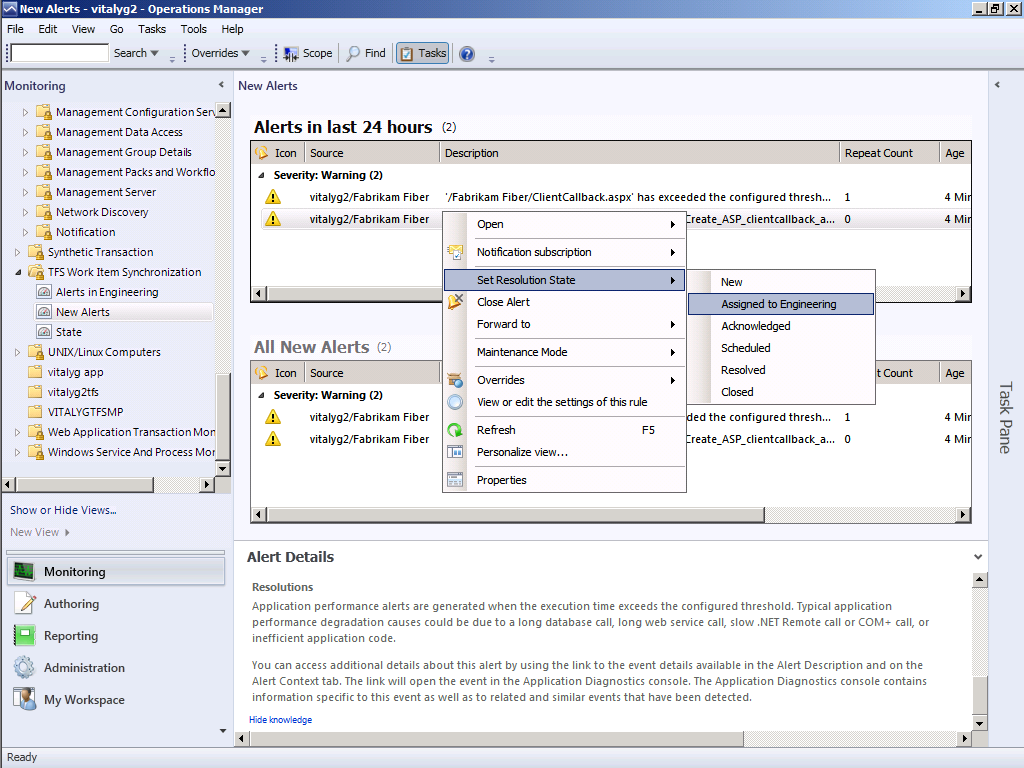Better Together: TFS 2010 and System Center 2012
This week, we’re celebrating the launch of System Center 2012 at the Microsoft Management Summit (MMS) in Las Vegas. As part of the launch wave, we released a final version of the System Center Management Pack for TFS Work Item Synchronization, which is available for download here. This version of the management pack works with the current RTM versions of both products: TFS 2010 and the Operations Manager component of System Center 2012. (TFS 11 support will be coming in the future.)
Last year at the TechEd North America keynote I announced the first management pack CTP, and also talked about it in this interview on DotNetRocks. The management pack is designed for enterprises who want tighter collaboration between their development and operations teams. It takes alerts raised by the Application Performance Monitoring (APM) capability within the Operations Manager component of System Center 2012, and synchronizes them with TFS work items. Using the management pack, operations teams can easily forward the APM information directly into TFS as operational work items, and enable engineering teams to more quickly identify the root cause and develop a fix. This dramatically reduces the mean time to repair (MTTR) and helps the DevOps cycle.
Here are a few screenshots, so you can see how this all works. First, the operations staff sees an APM alert from a running application and sends it as a bug directly to the development team:
The fact that the issue goes directly into TFS (and not into email, for example) means that it will be going through the same process as the other bugs that the development team is already tracking and prioritizing. Next, after fixing the bug, the developers can quickly queue up a build for the operations team to deploy to production.
One of the great things about this solution is that the software automatically captures the relevant details that the developer needs to debug the issue. The support engineer doesn’t need to think about what information to collect, or even know what a callstack is. By capturing all this actionable data for the developer, the management pack bridges the worlds of operations and development, makes communication more simple and effective, and reduces friction between the two teams.
The management pack also includes two-way sync between TFS and Operations Manager. This enables visibility into the status of a work item from either product, and allows the operations team to keep track of when a fix might be available.
I’m really happy about our partnership with System Center and the value we’ve created across the two products. The combined strengths of the Visual Studio team in development and the System Center team in operations gives us the assets we need to provide great support for DevOps scenarios. Stay tuned for more news in the future.
If you missed the MMS keynote today, you can watch it on demand here. And don’t forget to download the System Center Management Pack for TFS!
Enjoy!
Follow me at twitter.com/jlzander .

